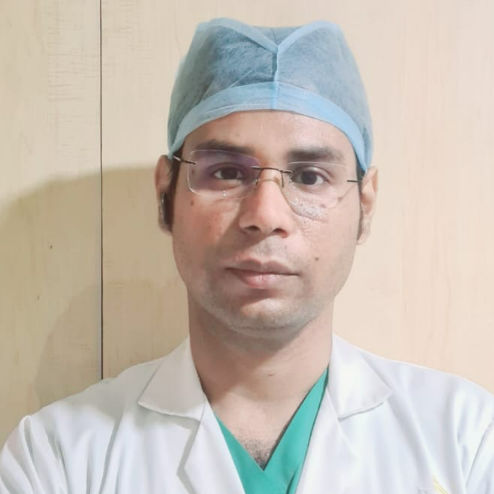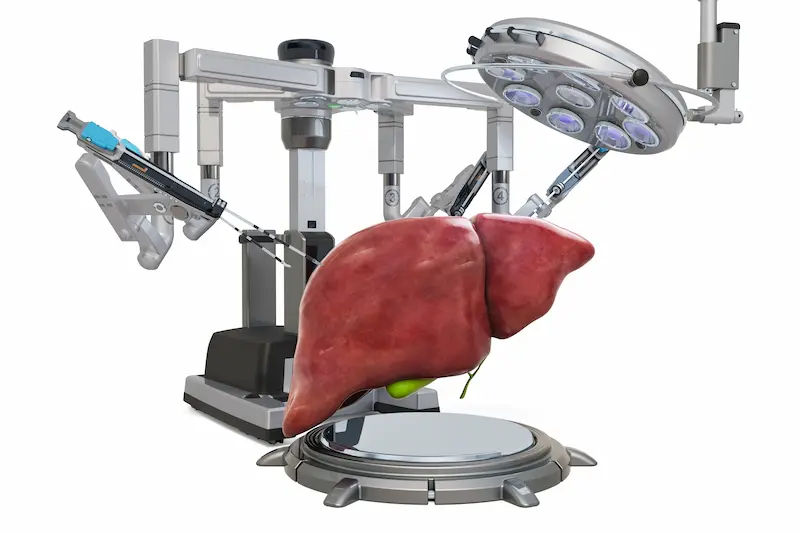Amnesia Overview, Types, Causes, and Treatment
Explore the overview of amnesia, including its types, causes, diagnosis and treatment options. Learn how memory loss affects individuals and discover ways to manage and improve cognitive function.

Written by Dr. J T Hema Pratima
Reviewed by Dr. D Bhanu Prakash MBBS, AFIH, Advanced certificate in critical care medicine, Fellowship in critical care medicine
Last updated on 13th Jan, 2026

Introduction
Memory is a precious part of our lives; it helps us remember loved ones, important events, and even simple daily tasks. But what happens when memory starts to fade or disappear? This condition is called amnesia, and it can be distressing for both patients and their families.
In this article, we’ll explain amnesia in simple terms, what it is, the different types, possible causes, and how it can be treated or managed.
What is Amnesia?
Amnesia is a condition where a person experiences memory loss. This can include forgetting past events, difficulty forming new memories, or both. It’s not the same as normal forgetfulness (like misplacing keys or forgetting a name). Amnesia is more severe and can disrupt daily life.
People with amnesia may still retain their general knowledge, personality, and skills (like speaking or walking), but they struggle with recalling specific memories.
Consult a Neurologist for the best advice
Types of Amnesia
There are two main types of amnesia:
1. Retrograde Amnesia
- A person cannot remember past events before the onset of amnesia.
- For example, someone might forget their wedding day or childhood memories.
- Often caused by brain injuries, trauma, or diseases like Alzheimer’s.
2. Anterograde Amnesia
- A person cannot form new memories after the condition starts.
- They may remember their past but struggle to recall recent conversations or events.
- Common in conditions like Alzheimer’s or brain damage (e.g., from a stroke).
Other less common types include:
- Transient Global Amnesia (TGA): A temporary, sudden memory loss that usually resolves within 24 hours.
- Dissociative Amnesia: Caused by psychological trauma, leading to memory gaps about personal identity or stressful events.
What Causes Amnesia?
Amnesia can result from various factors, including:
1. Brain Injuries
- Head trauma (e.g., accidents, falls, or sports injuries).
- Damage to the hippocampus (a brain region crucial for memory).
2. Medical Conditions
- Stroke (interrupts blood flow to the brain).
- Seizures or epilepsy.
- Brain tumors or infections (e.g., encephalitis).
- Alzheimer’s disease and dementia.
3. Psychological Factors
Severe stress, trauma, or emotional shock (dissociative amnesia).
4. Substance Abuse
Long-term alcohol abuse can lead to Wernicke-Korsakoff syndrome, a type of memory loss.
5. Medications
Some sedatives or anesthesia can cause short-term memory issues.
How Does Amnesia Affect Daily Life?
Living with amnesia can be challenging. People may:
- Forget important dates, names, or recent conversations.
- Struggle with learning new information.
- Feel confused or frustrated.
- Need assistance with daily tasks.
However, many retain their intelligence and personality, which can help in recovery.
Diagnosis and Treatment
If you or a loved one experiences memory problems, consult a doctor. Diagnosis may involve:
- Medical history review (to identify causes like injury or illness).
- Cognitive tests (memory quizzes, problem-solving tasks).
- Brain scans (MRI or CT scan) to check for damage.
Treatment Options
There’s no single cure, but management includes:
1. Medical Treatments
- Treating the underlying cause (e.g., surgery for brain injury, medication for infections).
- Supplements (like vitamin B1 for alcohol-related amnesia).
2. Therapy & Rehabilitation
- Occupational therapy (helps relearn daily skills).
- Cognitive therapy (memory exercises, journaling).
- Psychological counseling (for trauma-related amnesia).
3. Lifestyle & Home Care
- Use memory aids (notes, alarms, smartphone reminders).
- Stay socially active (engaging with friends and family helps memory).
- Eat a brain-healthy diet (fish, nuts, leafy greens).
- Exercise regularly (improves blood flow to the brain).
When to See a Doctor?
Seek medical help if:
- Memory loss affects daily life.
- There’s sudden confusion or disorientation.
- Memory loss follows a head injury or illness.
Early diagnosis improves treatment outcomes!
Final Thoughts
Amnesia can be scary, but with the right care, many people regain some or all of their memory. If you or someone you know is struggling with memory loss, don’t hesitate to reach out to a healthcare professional.
Consult a Neurologist for the best advice
Consult a Neurologist for the best advice

Dr. Aditendraditya Singh Bhati
Neurosurgeon
21 Years • MBBS(2004), DNB Neurosurgery(2014); MNAMS; Fellow Skull Base Endoscopy (Italy), Fellow Extended Skull Base ( Weill Cornell, USA), Fellow ZAP-X Radiosurgery. Member of American Association of Neurological Surgeons
Delhi
Apollo Hospitals Indraprastha, Delhi
(100+ Patients)

Dr. Ganeshgouda Majigoudra
Neurologist
10 Years • MBBS, MD ( GENERAL MEDICINE) DM (NEUROLOGY)
Bengaluru
Apollo Clinic, JP nagar, Bengaluru

Dr. E Prabhakar Sastry
General Physician/ Internal Medicine Specialist
40 Years • MD(Internal Medicine)
Manikonda Jagir
Apollo Clinic, Manikonda, Manikonda Jagir
(150+ Patients)

Dr Debnath Dwaipayan
Neurosurgeon
9 Years • MBBS, MS(Gen. Surgery), DrNB (Neurosurgery)
Delhi
Apollo Hospitals Indraprastha, Delhi

Dr. Jaidev S
Neurosurgeon
10 Years • MBBS, MS ( Genera Surgery), MCH Neurolosurgery
Bengaluru
Apollo Clinic, Indiranagar, Bengaluru
Consult a Neurologist for the best advice

Dr. Aditendraditya Singh Bhati
Neurosurgeon
21 Years • MBBS(2004), DNB Neurosurgery(2014); MNAMS; Fellow Skull Base Endoscopy (Italy), Fellow Extended Skull Base ( Weill Cornell, USA), Fellow ZAP-X Radiosurgery. Member of American Association of Neurological Surgeons
Delhi
Apollo Hospitals Indraprastha, Delhi
(100+ Patients)

Dr. Ganeshgouda Majigoudra
Neurologist
10 Years • MBBS, MD ( GENERAL MEDICINE) DM (NEUROLOGY)
Bengaluru
Apollo Clinic, JP nagar, Bengaluru

Dr. E Prabhakar Sastry
General Physician/ Internal Medicine Specialist
40 Years • MD(Internal Medicine)
Manikonda Jagir
Apollo Clinic, Manikonda, Manikonda Jagir
(150+ Patients)

Dr Debnath Dwaipayan
Neurosurgeon
9 Years • MBBS, MS(Gen. Surgery), DrNB (Neurosurgery)
Delhi
Apollo Hospitals Indraprastha, Delhi

Dr. Jaidev S
Neurosurgeon
10 Years • MBBS, MS ( Genera Surgery), MCH Neurolosurgery
Bengaluru
Apollo Clinic, Indiranagar, Bengaluru
 Health Benefits, Uses, and Side Effects.webp)



.webp)